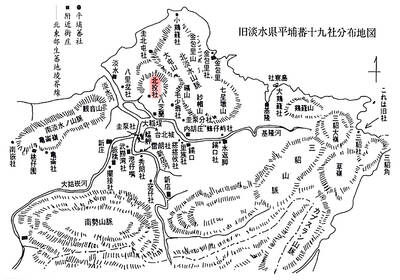As you travel along the drive to James Lovelock’s house, located in a remote, wooded valley on the Cornwall-Devon border in southwest England, you pass a sign by a gated cattle grid. “Experimental station,” it reads. “Site of a new natural habitat. Please do not trespass or disturb.”
Thirty years ago, Lovelock planted 20,000 trees to create the much more biodiverse habitat around his home. But you suspect that, had this fiercely independent scientist and globally respected environmental thinker been around 3.8 billion years ago when life first erupted on this planet, he would have organized a similar notice to be placed somewhere prominent.
After all, Lovelock — now into his 90s but still fit enough to be invited aboard Richard Branson’s soon-to-launch commercial spacecraft — is the man who first developed the “Gaia theory” in the late 1960s: the still-challenging idea that Earth is one giant, self-regulating organism whose equilibrium is being very much disturbed by the actions of one species. Lovelock has been warning with increasing urgency that the survival of that species — Homo sapiens — is now gravely threatened by the Revenge of Gaia, the title of one of his more recent best-selling books.
He is billed as an Old Testament-style prophet for our times, predicting fire and brimstone for a damned generation if it does not urgently and radically change its polluting ways. But in person Lovelock has a becalming presence, even when firing off verbal thunderbolts at the various “dumbos” with whom we have bestowed our collective fate: namely, “the politicians, scientists and lobbyists.”
The past four months, he says, have only hardened his disdain for this grouping; a turbulent period that has seen efforts to tackle climate change undermined by the online release of the hacked University of East Anglia e-mails, the failure of the Copenhagen climate conference, the (forced) admission by the Intergovernmental Panel on Climate Change that its latest report contained some minor mistakes, and the onset of an exceptionally cold winter across some parts of the northern hemisphere.
Leaning back into his swivel chair in his modest office-cum-laboratory, from where he writes and conducts the odd commissioned experiment for the Ministry of Defense and the British secret service — often called MI5 — (“it’s nothing that interesting; just health-and-safety work,” he says when probed for more detail), Lovelock directs his first wave of ire at the reports that climate scientists had been caught up in the e-mail scandal. He was, he says, “utterly disgusted” when he first heard about the allegations. (He didn’t read the actual e-mails when they were posted online, adding that: “Oddly, I felt reluctant to pry.”)
During this discussion, Lovelock recalls the “corruption of science” that occurred during the attempts to link chlorofluorocarbons with the hole in the ozone layer in the 1980s. “Fudging the data in any way whatsoever is quite literally a sin against the holy ghost of science. I’m not religious, but I put it that way because I feel so strongly. It’s the one thing you do not ever do.”
Lovelock says the events of the past few months have seen him warm to the efforts of some climate skeptics: “What I like about skeptics is that in good science you need critics that make you think: ‘Crumbs, have I made a mistake here?’ If you don’t have that continuously, you really are up the creek.
“The good skeptics have done a good service — but some of the mad ones, I think, have not done anyone any favors. Some, of course, are corrupted and employed by oil companies and things like that. Some even work for governments. For example, I wouldn’t put it past the Russians to be behind some of the disinformation to help further their energy interests. But you need skeptics, especially when the science gets very big and monolithic.”
And the skeptics are right, he says, to be deeply distrustful of scientists who are overly reliant on computer models, particularly when it comes to predicting future climate scenarios: “We’re not that bright an animal. We stumble along very nicely and it’s amazing what we do do sometimes, but we tend to be too hubristic to notice the limitations. If you make a model, after a while you get suckered into it. You begin to forget that it’s a model and think of it as the real world.”
It is obvious, both from talking to Lovelock and reading his work, particularly his most recent books, that he doesn’t have the highest opinion of mankind’s capabilities to see the long game and act accordingly.
“I don’t think we’re yet evolved to the point where we’re clever enough to handle as complex a situation as climate change,” he responds, when asked whether we are up to the task as a species of tackling climate change. “We’re very active animals. We like to think, ‘Ah yes, this will be a good policy,’ but it’s almost never that simple. Wars show this to be true. People are very certain they are fighting a just cause, but it doesn’t always work out like that. Climate change is kind of a repetition of a wartime situation. It could quite easily lead to a physical war.”
Hopelessness is a response, one senses, never far from a Lovelock audience. He is not one to toss around crumbs of comfort when he believes they’re not justified, and displays a great deal of contempt for what he believes to be the naive idealism and ideologies of much of the current environmental movement — a significant proportion of which still looks up to him with a certain reverence. For example, it was his high-profile switch a few years ago to promoting nuclear energy as the best hope for saving ourselves that helped convince many environmentalists to rethink their instinctive opposition to this technology. Now, he says, he is not convinced that any meaningful response to “global heating,” as he likes to call it, can be achieved from within the modern democracies of the Western world.
“We need a more authoritative world,” he says resolutely. “We’ve become a sort of cheeky, egalitarian world where everyone can have their say. It’s all very well, but there are certain circumstances — a war is a typical example — where you can’t do that. You’ve got to have a few people with authority who you trust who are running it. They should be very accountable too, of course — but it can’t happen in a modern democracy. This is one of the problems.
“What’s the alternative to democracy? There isn’t one. But even the best democracies agree that when a major war approaches, democracy must be put on hold for the time being. I have a feeling that climate change may be an issue as severe as a war. It may be necessary to put democracy on hold for a while.”
But with public confidence in climate science taking such a knock in recent months, what will it take to convince the public that urgent action really is required to reduce greenhouse gas emissions — or, as is Lovelock’s preference, to adapt and prepare the lifeboat for a changing climate?
“There has been a lot of speculation that a very large glacier in Antarctica is unstable,” he says, referring to Pine Island glacier or “the Pig,” as the scientists now monitoring it like to call it. “If there’s much more melting, it may break off and slip into the ocean. I’d say the scientists are not worried about it, but they are keeping a close watch on it. It would be enough to produce an immediate sea level rise of 2m — something huge. And tsunamis. That would be the sort of event that would change public opinion — or a return of the dustbowl in the American midwest. Another IPCC report won’t be enough; we’ll just argue over it like now.”
(I later contact Robert Bindschadler, the NASA scientist who leads the team monitoring the Pig. “No one expects full collapse of the system as quickly as [in the next] 100 years,” Bindschadler responds, “‘but even if it did, the mean rate of sea level rise would ‘only’ triple the current rate of rise. No one would get their feet wet overnight.”)
On a notice board behind Lovelock hangs a photograph of a huge wind turbine. As an active anti-wind farm campaigner, does it infuriate him that so much investment is now being poured into renewable energy infrastructure? “I’ve always said that adaptation is the most serious thing we can do,” he says. “Are our sea defenses adequate? Can we prevent London from flooding? This is where we should be spending our billions. If wind turbines really worked, I wouldn’t object to them. To hell with the aesthetics, we might need them to save ourselves. But they don’t work — the Germans have admitted it.
“It’s like the [European] Common Agricultural Policy, which led to corruption and inefficiencies. A common energy policy across Europe is not a good idea. I’m in favor of nuclear for crowded places like Britain for the simple reason that it’s cheap, effective and exceedingly safe when you look at the record.”
His views on carbon emissions trading, as is being touted by the EU and others, are equally dismissive: “I don’t know enough about carbon trading, but I suspect that it is basically a scam. The whole thing is not very sensible. We have this crazy idea that we are setting an example to the world. What we’re doing is trying to make money out of the world by selling them renewable gadgetry and green ideas. It might be worthy from the national interest, but it is moonshine if you think what the Chinese and Indians are doing [in terms of emissions]. The inertia of humans is so huge that you can’t really do anything meaningful.”
Lovelock freely admits that, at 90, he won’t be around to see the results of the “experiment” humans are currently conducting with the atmosphere. It’s what, in part, gives him the license to speak with such frankness. But for anyone younger, Lovelock’s prognosis for our species is hard to hear, let alone accept. That a black, rain-laden cloud is welling up over the nearby moorland as I set off to leave only acts to darken the mood.

Seven hundred job applications. One interview. Marco Mascaro arrived in Taiwan last year with a PhD in engineering physics and years of experience at a European research center. He thought his Gold Card would guarantee him a foothold in Taiwan’s job market. “It’s marketed as if Taiwan really needs you,” the 33-year-old Italian says. “The reality is that companies here don’t really need us.” The Employment Gold Card was designed to fix Taiwan’s labor shortage by offering foreign professionals a combined resident visa and open work permit valid for three years. But for many, like Mascaro, the welcome mat ends at the door. A

The Western media once again enthusiastically forwarded Beijing’s talking points on Japanese Prime Minister Sanae Takaichi’s comment two weeks ago that an attack by the People’s Republic of China (PRC) on Taiwan was an existential threat to Japan and would trigger Japanese military intervention in defense of Taiwan. The predictable reach for clickbait meant that a string of teachable moments was lost, “like tears in the rain.” Again. The Economist led the way, assigning the blame to the victim. “Takaichi Sanae was bound to rile China sooner rather than later,” the magazine asserted. It then explained: “Japan’s new prime minister is

NOV. 24 to NOV. 30 It wasn’t famine, disaster or war that drove the people of Soansai to flee their homeland, but a blanket-stealing demon. At least that’s how Poan Yu-pie (潘有秘), a resident of the Indigenous settlement of Kipatauw in what is today Taipei’s Beitou District (北投), told it to Japanese anthropologist Kanori Ino in 1897. Unable to sleep out of fear, the villagers built a raft large enough to fit everyone and set sail. They drifted for days before arriving at what is now Shenao Port (深奧) on Taiwan’s north coast,

Divadlo feels like your warm neighborhood slice of home — even if you’ve only ever spent a few days in Prague, like myself. A projector is screening retro animations by Czech director Karel Zeman, the shelves are lined with books and vinyl, and the owner will sit with you to share stories over a glass of pear brandy. The food is also fantastic, not just a new cultural experience but filled with nostalgia, recipes from home and laden with soul-warming carbs, perfect as the weather turns chilly. A Prague native, Kaio Picha has been in Taipei for 13 years and